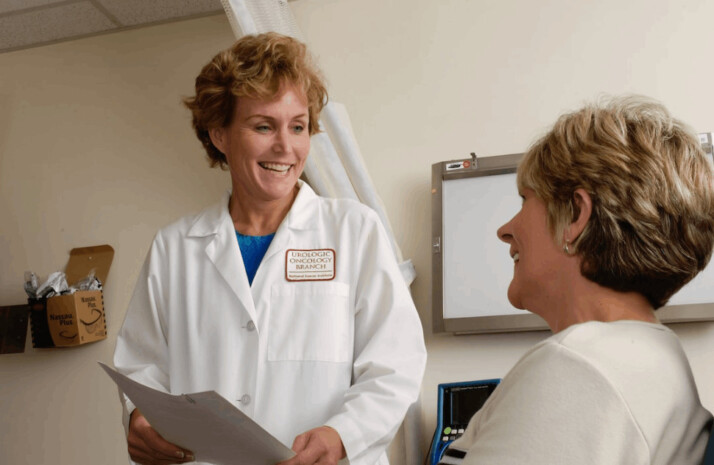Even if your doctor is an easy-going, sweet female, you might feel embarrassed to ask certain women health questions.
It’s never easy speaking about intimate health topics. If you’ve struggled with this, keep reading to find answers to common women’s health questions. Your health is the most precious thing in your life, so finding the answers to your questions is worth it.
Understanding your health and learning about what changes may signify a problem is important, so this is a good place to start. Read on for answers to the most common concerns that women ask.

10 Common Women Health Questions
1. Is there a problem if I experience pain during sex?
Some females suffer discomfort during sex for harmless reasons, such as a lack of lubrication. Other times, the pain can be a sign of a severe condition, such as endometriosis or ovarian cysts. This report is according to the American College of Obstetricians and Gynecologists (ACOG).
The best course of action if you are having pain during sex is to speak with your doctor. He/she can ascertain whether there is an underlying cause and, if not, provide options for pain relief.
2. Why is my period so heavy?
Every woman has a different period. According to ACOG, they typically last up to eight days. If yours lasts longer or is heavier than usual, you should see a doctor.
One condition that could make your periods heavier is fibroid. In addition, if you experience significant cramping during your period or bleed or spot in between periods, you should consult your doctor.
3. Should I be worried about my vaginal odor?
The vagina has a natural smell, but odors don’t always indicate something wrong. Fishy smells may hint at a bacterial infection, and a bread-like smell may indicate a yeast infection. Other smells don’t always indicate a problem.
For instance, a musty smell could signify that you were sweating. And a chemical or bleach smell, particularly after sex, could be brought on by particular lubricants or condom types. Do not be afraid to see your doctor if you notice a strong odor or an odd change in odors.
4. Does vaginal discharge indicate a problem?
Some vaginal discharges are normal and indicate that your vagina is healthy. A typical discharge may vary in frequency and thickness during your monthly cycle.
However, you should consult your doctor if you suffer an increase in discharge volume. Also, if you experience itchiness or burning along with the discharge, detect a bad smell, or have a white, clumpy discharge. These discharges might be an indication of an infection.
5. How frequently should I get a pelvic exam?
The American College of Obstetricians and Gynecologists (ACOG) advises women above the age of 21 to get a pelvic exam yearly. But not everybody concurs.
The Australian Preventative Services Task Force found insufficient evidence to determine if annual exams for non-pregnant women are beneficial or harmful. This is if these women have no symptoms of sex-transmitted infections and cervical cancer. It is best to discuss your case with your doctor before deciding on an examination schedule.
6. What distinguishes an STD from an STI, if anything?
STD means Sexually Transmitted Disease, and STI stands for Sexually Transmitted Infection. Frequently, they are used interchangeably.
The word STI is frequently more technically accurate than STD, which many people use. This is because having an “infection” does not always imply having symptoms, whereas having a “disease” does. Many STI sufferers have no symptoms at all.
7. How can I tell when menopause begins?
According to the North American Menopause Society, menopause is confirmed after a woman hasn’t experienced a period in 12 months. An estimated 51 is the average age.
You often encounter symptoms such as irregular periods, mood swings, hot flashes, and night sweats during perimenopause, which is the time before menopause. This can start in your 40s and linger for years before the beginning of menopause.
8. Is having sex while pregnant okay?
Most pregnant women can have intercourse without risk. A cervical mucus plug that forms during pregnancy shields the unborn child from anything that enters the vagina.
According to a study in the Canadian Medical Association Journal, some women with a history of miscarriage might have a higher risk at intercourse. If you’re unsure whether you should avoid having sexual relations while you’re pregnant, go to your doctor.
9. I’ve never experienced orgasms. Is this normal?
According to an Annual Review of Sex Research article, orgasm issues are the second most common sexual problem reported. The prevalence of women’s orgasmic dysfunction is between 4 and 7 percent. This means despite a high level of arousal; you do not experience an orgasm.
Some women find it challenging to experience an orgasm during sex without direct clitoral stimulation. Some women may benefit from sex therapy, masturbation, or cognitive behavioral therapy.
10. Can you become pregnant while having your period?
Although women can become pregnant during their period, your odds of conception are quite low. This is because, usually, there isn’t an egg to be fertilized at that time.
However, some women tend to ovulate at different times during their cycles. So, it may still be feasible for you to become pregnant if you ovulate immediately after your cycle is finished. We advise using a condom, an alternative method of birth control, or refraining from sexual activity if you don’t want to get pregnant.
Wrapping Up
Learning about women health questions is a way of asserting your right to be healthy and well-informed. It’s a right that women are now actively pursuing and that you should make every effort to secure for yourself.
These responses to frequently asked women health questionsshould help you feel more at ease.
Remember that talking to your doctor can help you receive responses tailored to your particular health situation. If you’re dealing with unpleasant new symptoms, getting better requires professional care. Be certain that your doctor will get you the care you need.
Explore All Engaging Questions Tool Articles
Consider These Fun Questions About Spring
Spring is a season in the Earth’s yearly cycle after Winter and before Summer. It is the time life and…
Fun Spouse Game Questions For Couples
Answering spouse game questions together can be fun. It’ll help begin conversations and further explore preferences, history, and interests. The…
Best Snap Game Questions to Play on Snapchat
Are you out to get a fun way to connect with your friends on Snapchat? Look no further than snap…
How to Prepare for Short Response Questions in Tests
When it comes to acing tests, there are a few things that will help you more than anything else. Good…
Top 20 Reflective Questions for Students
As students, we are constantly learning new things. Every day, we are presented with further information and ideas we need…
Random History Questions For History Games
A great icebreaker game is playing trivia even though you don’t know the answer. It is always fun to guess…
